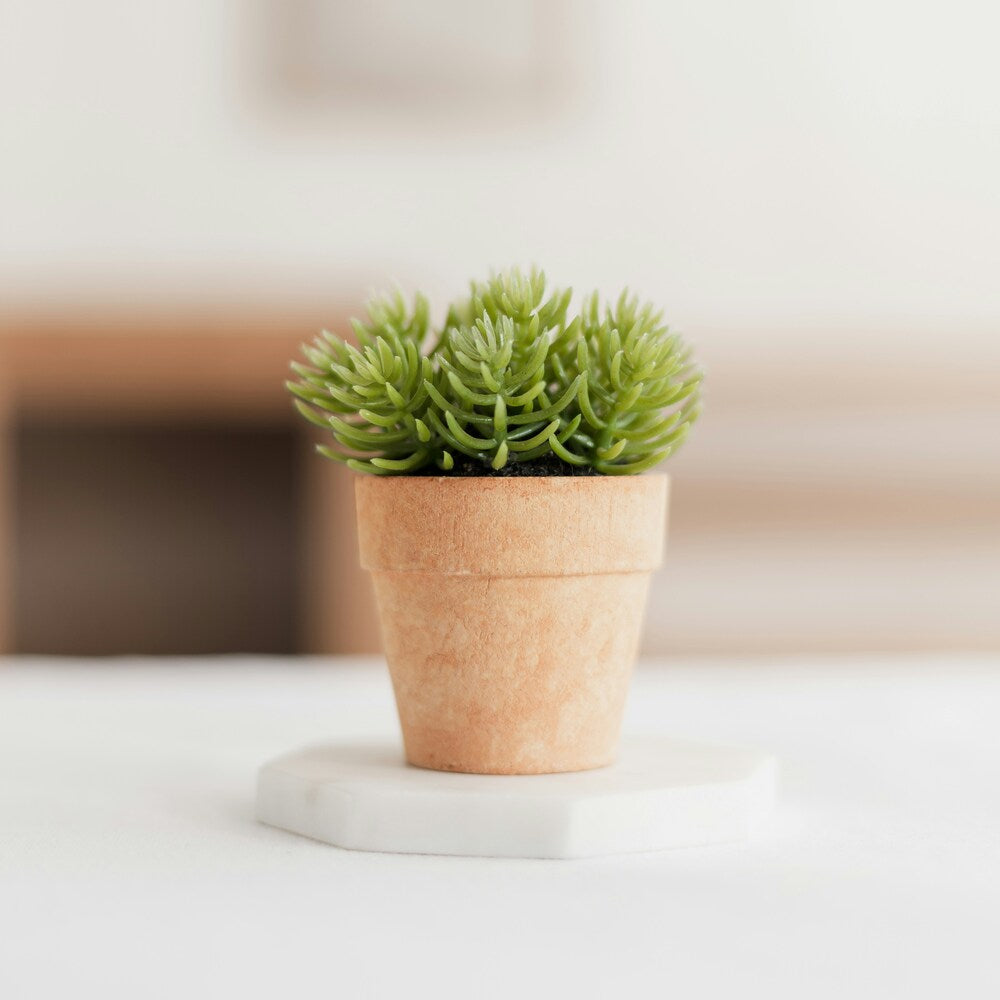The sofa is often the centerpiece of any living room—it's where we relax, chat, and enjoy our free time. However, it can quickly become dirty, and regular cleaning is often neglected. Cleaning your sofa is important not only for hygienic reasons but also to keep it looking its best and extend its lifespan. In this guide, you'll discover everything you need to know about cleaning your sofas—from the different materials and how to care for them to home remedies and professional cleaning products.
Why is regular sofa cleaning important?
There are many reasons why you should clean your sofa regularly. Here are some effective reasons:
Extending the lifespan of your sofas
Regular cleaning removes dirt and dust that can settle in the fibers and thus affect the lifespan of your sofa. Regularly cleaning your sofa ensures that it lasts for years and remains in good condition.
Improving hygiene and cleanliness
The sofa is frequently used by different people and can therefore quickly become a breeding ground for germs, bacteria, and mites. Regular cleaning can remove these unwanted intruders, creating a clean and hygienic environment.
Maintaining the attractive appearance
A dirty sofa can quickly create a negative impression, especially if it's a light color or has a nice pattern. Regular cleaning ensures your sofa always stays attractive and clean.
Besides these reasons, there are other benefits to regular sofa cleaning. A thorough cleaning can help remove odors that can build up over time. It can also remove stains and discoloration that can affect your sofa's appearance.
There are several ways to clean your sofa, depending on the material and type. For leather or synthetic leather sofas, it's advisable to use special cleaning agents to avoid damaging the material. For fabric sofas, consider steam cleaning or dry cleaning.
Regardless of the method you choose, it's important to clean it regularly to enjoy the benefits. Cleaning every few months should be sufficient, but if your sofa is heavily used, you may need to clean it more often.
In summary, regular sofa cleaning offers many benefits and can help keep your sofa in good condition for years to come. It's a simple and effective way to ensure your home looks clean, hygienic, and attractive.
The different materials and their care
Sofas are available in many different materials, each with its own care requirements. Here's an overview of common materials and the best cleaning methods:
Clean fabric sofas
Fabric sofas require particular care because they tend to stain and smell. To remove stains, it's advisable to treat them immediately before they dry. This can be done with an enzyme-based stain remover or a mild soap solution. To clean the entire sofa, you can use a wet cleaner or have it professionally cleaned.
Did you know that modular sofas can be an eco-friendly option? If you're looking for an eco-friendly fabric sofa, look for ones made of organic cotton or recycled polyester. These materials are not only more sustainable, but also hypoallergenic and suitable for people with sensitive skin.

Care for leather sofas
Leather is a durable and hard-wearing material that's easy to clean. Simply wipe down your leather sofa regularly to remove dust. To clean it, you can use a special leather cleaner and then treat the sofa with a leather care solution to keep it supple.

Did you know there are different types of leather? Distressed leather is the highest quality and most durable, while split leather is a more affordable alternative. When buying a leather sofa, you should pay attention to the type of leather used and how it needs care. You can find more information in our detailed guide on caring for your leather sofa properly .
Keep synthetic leather sofas clean
Synthetic leather is an inexpensive alternative to real leather and is also easy to clean. A damp cloth and mild soapy water are all you need to keep your synthetic leather sofa clean. However, make sure it's free from harsh cleaning agents and sharp brushes or sponges to prevent scratches or damage.
Did you know that synthetic leather is made of polyurethane? Polyurethane is a plastic used in many products, from mattresses to car seats. It's a durable and hard material that's also more environmentally friendly than real leather because it's made without animal hides.
Maintain rattan and wooden benches
Rattan and wooden benches require regular care to keep them in good condition. To keep the surface clean, you can treat it with a special wood polish or simply dust it with a duster. Avoid harsh cleaning agents and excessive moisture to prevent damage.
Did you know that rattan is a sustainable material? It's obtained from palm trees and grows quickly, making it an environmentally friendly option for furniture. It's also very durable and can last for years when properly maintained.
Sofa Cleaning Home Remedies
If you want to avoid using cleaning products and chemicals on your sofa, there are some effective home remedies you can use for cleaning both fabric and leather sofas:
Soda and vinegar for fabric sofas
Mix baking soda and vinegar into a paste and apply it to the stained areas. Let the paste work, then wipe it off with a damp cloth. The baking soda acts as a natural cleaner, and the vinegar as a disinfectant.
Did you know that baking soda is also used as a mild cleaner for various surfaces, such as refrigerators, floors, and even as a toothpaste substitute? Vinegar, on the other hand, is a proven disinfectant and can also be used to clean windows and mirrors.
Olive oil and lemon juice for leather sofas
Mix equal parts olive oil and lemon juice and wipe it onto the leather with a soft cloth. The olive oil nourishes the leather, while the lemon juice acts as a disinfectant. Wait for the solution to absorb before wiping the sofa with a clean, dry cloth.
Olive oil is not only a good cleaner for leather sofas but can also be used as a skin moisturizer. It contains many vitamins and antioxidants that can help keep your skin healthy and radiant. Lemon juice, on the other hand, is rich in vitamin C and can also be used as a natural bleach for clothes.
Damp cloth and mild soap for synthetic leather
A mild soap solution and a damp cloth are often enough to keep your synthetic leather sofa clean. Spread the soapy water on the sofa and then wipe it with a damp cloth. Be sure to dry the sofa thoroughly after cleaning.
Synthetic leather is a great alternative to real leather and can look and feel just as good. It's also easier to clean and maintain than real leather, as it's less susceptible to stains and dirt.
Wood pile and fabric sheets for rattan and wooden benches
Use a special wood polish and a soft duster to keep your rattan or wooden bench clean. Apply the wood polish to the bench and then wipe it clean with a soft cloth. Avoid applying water or damp cleaning agents to the bench.
Wooden benches and rattan furniture are timeless and elegant. However, they can be susceptible to scratches and stains, especially when used outdoors. Regular cleaning and care with a special wood polish can help keep your bench in good condition and extend its lifespan.
Professional cleaning products and equipment
If you're unsure which cleaning agent or procedure to choose, or if you have stubborn stains on your sofa, consider professional cleaning. Here are some professional cleaning products and equipment that can help you keep your sofa clean:
Textile cleaner for fabric sofas
A fabric cleaner can penetrate deep into the fibers of a fabric sofa to remove even stubborn stains and odors. Follow the instructions on the cleaner's label and let the sofa dry before using it again.
It's also important to note that fabric sofas need regular cleaning to maintain their durability and appearance. Dust, dirt, and debris can build up over time and damage the sofa. Regular cleaning can help keep your sofa looking new for longer.
Leather care products for leather sofas
There are several leather care products on the market specifically designed for cleaning and maintaining leather sofas. These products can help keep the leather smooth and protect it from cracks and stains.
It's also important to note that leather sofas require regular maintenance to maintain their beauty and durability. Leather can dry out and crack over time if left untreated. Regular cleaning and care can help keep them looking new.
Special synthetic leather cleaner
If you have a synthetic leather sofa, you should use special cleaning products specifically designed for this purpose. These cleaners are gentle yet effective and will help keep your sofa in perfect condition.
Faux leather sofas are a great alternative to real leather because they're often less expensive and easier to maintain. However, it's still important to clean and maintain them regularly to ensure they stay in good condition and last a long time.
Steam cleaner for all types of sofas
A steam cleaner is an effective cleaning tool for all types of sofas. It uses steam to remove dirt, bacteria, and germs without chemicals. However, keep in mind that some materials, such as leather, are more delicate and can be damaged by using a steam cleaner.

It's also important to note that a steam cleaner isn't suitable for all types of stains. If you have stubborn stains, consider professional cleaning to ensure they're completely removed.
Regardless of which cleaning product or procedure you choose, it's important to clean and use your sofa regularly to ensure it stays in good condition. Professional cleaning can also help your sofa last longer and always look like new.
Conclusion
Cleaning your sofas is an important task that shouldn't be neglected. Regular cleaning can help extend their lifespan, keep them hygienic and clean, and leave an attractive impression.
If you have a fabric sofa, you should vacuum it regularly and wipe it down with a damp cloth. You can also use a special upholstery cleaning solution to remove stains. If you have a leather sofa, you should wipe it down with a damp cloth and occasionally treat it with leather care products to keep it supple and shiny.
Faux leather and rattan sofas also require regular cleaning to keep them in perfect condition. Synthetic leather can be cleaned with a damp cloth and mild detergent, while crow's-foot sofas can be cleaned with a soft brush and mild detergent.
If you have a wooden bench, you should regularly wipe it down with a damp cloth and occasionally treat it with wood care products to protect it from moisture and dirt.
Besides the cleaning tips mentioned above, there are also a variety of home remedies that can help clean sofas. Baking soda, for example, can help remove odors and stains, while vinegar and water are an effective cleaning solution for fabric sofas.
However, if you're having trouble cleaning your sofas or need to remove stubborn stains, consider professional cleaning products. A professional cleaning service can help keep your sofa in perfect condition and looking like new again.
With these tips and tricks for cleaning fabric, leather, synthetic leather, rattan, and wooden sofas, as well as home remedies and professional cleaning products, you'll have everything you need to keep your sofa in perfect condition.
Remember that regular cleaning not only helps extend the life of your sofas but also contributes to a clean and hygienic environment in your home. Invest the time and effort to clean your sofas and you'll be rewarded with a cozy and beautiful living room.


